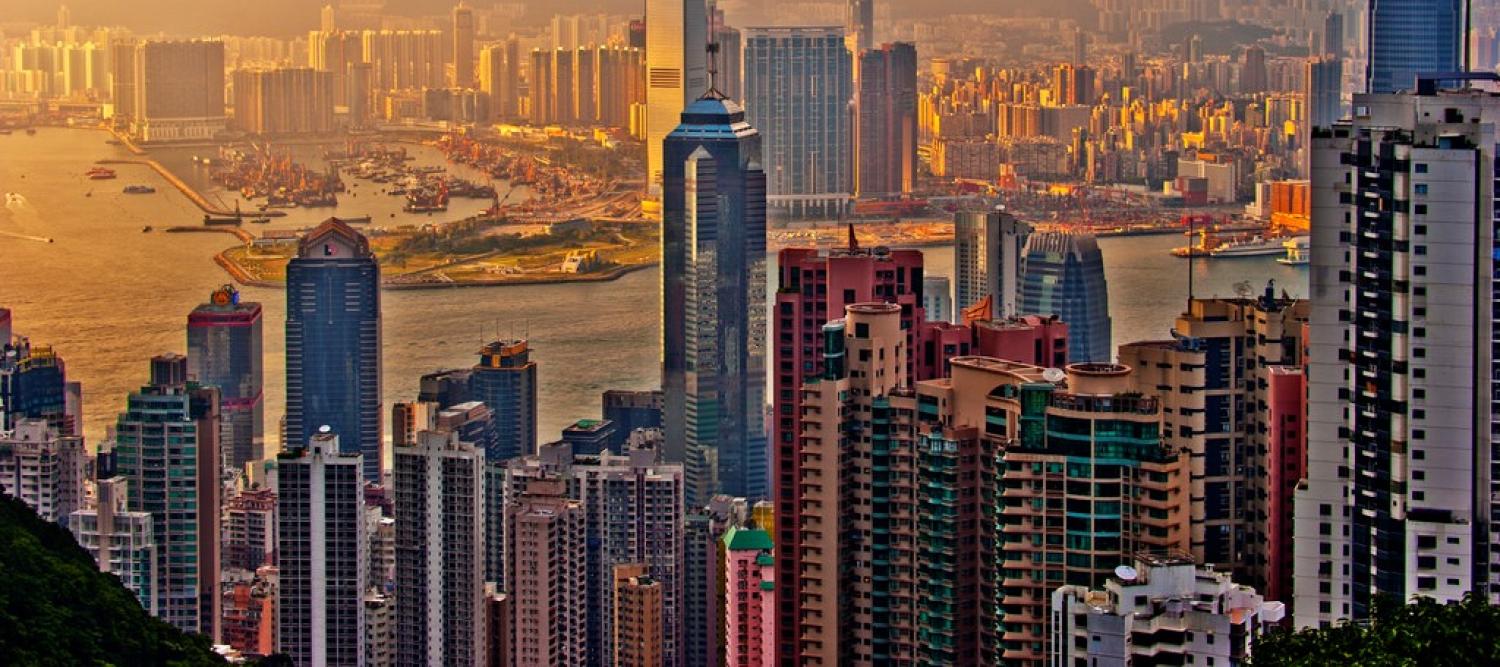Lovers carrying bouquets of roses and peonies were everywhere on the streets of Hong Kong on Valentine’s Day. But the romantic vibe didn’t extent to Hong Kong politics, in which Tuesday 14 February was also an important day: the beginning of the two-week ‘formal’ nomination process for the city’s fifth Chief Executive election, set to be a close race between two former senior government officials.
It’s a ‘formal’ process in the sense that it is restricted. The 1200 members of the Election Committee will decide who gets to be a candidate in this race, with hopefuls needing to get 150 nominations from the committee. Hong Kong has about seven million people but only 230,000 of them have a say in who gets to sit on this committee (which is now down to 1194 members as six seats were vacated for various reasons). So, for the vast majority, watching the nomination drama unfold is similar to being single on Valentine’s Day – you are not invited to the party.
The focal point of this election is the battle between former Chief Secretary Carrie Lam and former Financial Secretary John Tsang. These veteran civil servants were the most and second-most senior government officials behind Chief Executive Leung Chun-ying. Both Lam and Tsang only declared their intention to race in January. While Regina Ip (a lawmaker and former official) and retired judge Woo Kwok-hing announced their plans much earlier, the election on 26 March is likely to come down to a battle between Lam and Tsang.
When Leung, the most unloved leader Hong Kong has ever had, announced in December that he would not be running for a second term, many rejoiced but the relief was short-lived. When Lam announced she would run, it was clear whom Beijing’s pick would be. A close ally of Leung, not only did Lam vow to continue some of Leung’s policies if she were elected, she also demonstrated her loyalty to Beijing in the controversy over the location of the Hong Kong Palace Muse, in which Lam appeared to make sure Beijing’s preference would not be interfered with by local opinion.
Just before Christmas, Lam, then chairwoman of West Kowloon Cultural District, surprised Hong Kong with news a local version of Beijing’s Palace Museum was to be built in the arts hub. While few would have objected to opening a branch of the museum in Hong Kong, there was no public consultation, a process that undoubtedly would have revealed the museum was not in line with the district’s preferred focus on contemporary art and mixed performing venues. Lam made sure that it would be located in the arts hub long before the deal was announced. When questioned why no consultation took place beforehand, Lam told the media the deal had to be kept secret and consultation would have been difficult because it involved the central government.
On the other hand, the 65-year-old Tsang, affectionately known as ‘Uncle Pringles’, thanks to a moustache that’s similar to that sported by the brand’s cartoon hero, is seen as a less obedient character. As financial secretary under Leung, Tsang managed to draw a line between him and the Leung administration, tactfully and carefully suggesting he was on the side of the Hong Kong people rather than only serving Beijing’s interests.
The tension between Leung and Tsang was obvious when Hong Kong played China in FIFA World Cup qualifiers in 2015 and 2016. Leung, a Beijing loyalist anxious not to offend, refused to openly side with the Hong Kong squad. In contrast, Tsang was a keen cheerleader for the home team.
On controversial matters such as the ‘Wang Chau saga’, where the government reduced the amount of public housing to be developed in the rural area, allegedly due to pressure from the rural leaders, Tsang also distanced himself from the much-criticised Leung and his administration.
In the two week nomination process s before the 1 March vote, the candidates will lobby members of the Election Committee to secure the required 150 nominations. Lam already has the support of the majority of the pro-Beijing camp. The rest of the candidates appear to be struggling.
One factor that could stop Lam from winning, and thus beginning what would most likely be an extension of the Leung administration, could be the popularity of the candidate. After all, Leung, who was an underdog in the early days of the 2012 election process, eventually won the race because of his relatively higher popularity back then.
Tsang is campaigning on his popularity. His publicity campaign has been widely successful. He also launched a crowdfunding campaign for his race and so far nearly HK$5 million has been raised from around 25,000 donors.
Occupy Central co-initiator Benny Tai and the pro-democracy movement launched a Civil Referendum so that the public can take part in the nomination process, albeit unofficially. As of now, Tsang is leading that race. But to what degree this will be taken into account is unknown. Only 300 members of the Election Committee represent the pro-democracy camp.
Despite the apparent differences between Lam and Tsang, both candidates represent the pro-establishment camp. As the leader of Hong Kong, which is now in its twentieth year as the Special Administration Region of China, the Chief Executive has to take orders from Beijing. Controversial issues such as Article 23, which asks the city to draft a national security law that could cause a restriction of the city’s freedom, are among the pressing tasks. Perhaps it won't matter so much who wins.
